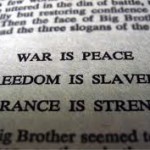And I will miss our Chinese friends even more. Jet-lag smacks me pretty hard, but it’s already starting to ease a little. (I can face my keyboard with only minimal dread.) The general disorientation of farewells, uprooting and re-entry into a previous context will soon fade; the cleaning and painting and purging of our house will be over in a few weeks. I believe and hope that I haven’t left China forever, and that I’ll see some of our friends again, but I know that for too many I’ve said my last goodbye. That’s how it happens, though I’m not much good at accepting it.
I’ll write more about it. I imagine a four-part goodbye: to the teaching work at two Dalian universities, to the new legs that China gave to my long-dormant basketball playing, to the wonders and remarkabilities of that tremendous country that is so suddenly front and centre to the world’s future, and to our sharing of the Baha’i vision with new and lasting friends. (I want you to hold me to this promise.) For now, for recently, I’ve only posted a couple of things.
In “At First Glance”, just below in this main section, you’ll find a piece I could have titled “Fear and Loathing on Huangpu Lu”. I probably was more than a few centimetres from death, but I stared at that speeding car from way too close and from the seat of my slightly soiled pants.
In the “It’s All About Sports” section, there’s this retrospective on the stunningly high level of basketball played by the San Antonio Spurs in winning the NBA championship. We still don’t get it, and with LeBron having dominated the North American sports headlines even after losing, even during the World Cup, my essay isn’t going to change anything. I tried, anyway.
“On Second Thought”, the place where I put ideas I’ve pondered and worried over longer, was just the spot for an older piece, one that didn’t find publication back in 2007 but still tells a story of faith and commitment that you might find touching. (It still touches me, but pain isn’t everything.)
And, it being World Cup season, with Germany and Argentina itching for a fight — but without violent or military intentions — a few days ago I quoted a fine American writer, Brian Phillips, who mused about what the Cup does that no other human activity can match. That’s in the “He Said/She Said” section.
Please note also that the so free and easy to SUBSCRIBE it’s almost sinful button is still just over there, top right.
JH [dot] com is on Twitter @JamesHowdenIII. It keeps followers up-to-date with what’s happening here, plus the usual Twitter smorgasboard of observations, pass-alongs and faves, and of course you’re welcome.
Thanks for looking in. If you’re new here, read on to find out more about “Sport, Culture and Other Obsessions” that I’ve been writing about…


